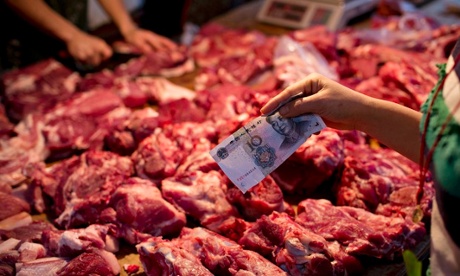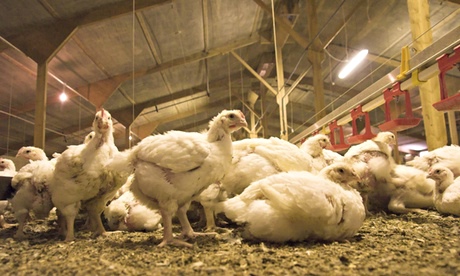George Monbiot’s demonisation of meat eating (Your festive meal could be worse than a long-haul flight, 23 December) is oversimplified and misleading. Factory farming is wasteful and horrific but other forms of livestock-rearing such as pastured grazing provide a highly nutritious source of food using land that is often unsuitable for horticulture. Pound for pound, pastured meat proteins are more diverse than those of cereals and are similar in terms of water use and carbon emissions. Livestock has an essential role in farming practices like permaculture, which may offer the only viable alternative for sustainable food production, utilising stubble and fertilising fields left to fallow. Pastured animals can improve soil health and repair damage done to it by incessant tilling, provided they are stocked at an appropriate level. Fatty meat provides almost three times the calories per kilogramme as cereals and contains almost every nutrient essential to the human body. Three billion people eat meat-free diets, and 4 billion suffer malnutrition. This does not make a case for going vegetarian.
Without doubt, the rich world needs to eat less meat, but the developing world also deserves to have a share of it. Steppe and other grassland converted to cereals supported huge populations of wild, methane-emitting herbivores, and is essentially neutral at sustainable levels (ie not artificially supported with feed). Similarly, termites emit twice the methane as livestock, but there is no great push for termite eradication. It is the intensity of meat production supported by oil energy that is the problem. Hence, the carbon costs of factory farming systems ultimately derive from the fossil fuels used to grow feed and artificially support the lives of these poor animals, and it must be stopped, if only for the sheer cruelty of the animals’ treatment.
Chris Brausch
Katikati, New Zealand
• As an omnivore who reuses our leftovers and grows quite a lot of fruit and vegetables, I am getting increasingly exasperated by George Monbiot’s selective quotation of low-grade literature about meat production. Meat production accounts for about a seventh of current greenhouse emissions, which could be reduced with simple mitigation measures. Anaerobic digesters have been around since the 1970s – developed to help poor farmers cook in their huts without choking on wood smoke, reducing deforestation in the process. Had the EU not succumbed to vested interests, this technology could have transformed meat production. How about some seasonal cheer next year by campaigning to reduce food waste by banning ever more confusing and complex interlinked supermarket offers, so that good meat does not end up being binned?
David Nowell
Fellow of the Geological Society,
New Barnet, Hertfordshire
• Farmers here in Britain, and indeed around the world, already know they are on the frontline of climate change. “All aspects of food security are at risk,” according to the Intergovernmental Panel on Climate Change. It’s no wonder then that farmers representing different farming systems and sizes were at the Paris climate conference, all united by the message that farming is important and that the new COP21 agreement needed to acknowledge this.
Real action is being taken by farmers to tackle climate change. Greenhouse gas emissions from UK agriculture have reduced by about 20% since 1990 and farmers are committed to continuing to play their part through the Greenhouse Gas Action Plan, helping the UK to meet its Climate Change Act target. It is not possible in a short letter to convey the breadth of work that the NFU’s members are undertaking to address George Monbiot’s concerns. But I hope that he can be inspired, like I am, by the farmers I meet – the majority of whom are trying every day to do the best job they can, but often have their efforts go unnoticed or unrewarded.
Dr Ceris Jones
NFU climate change adviser
• Join the debate – email guardian.letters@theguardian.com









